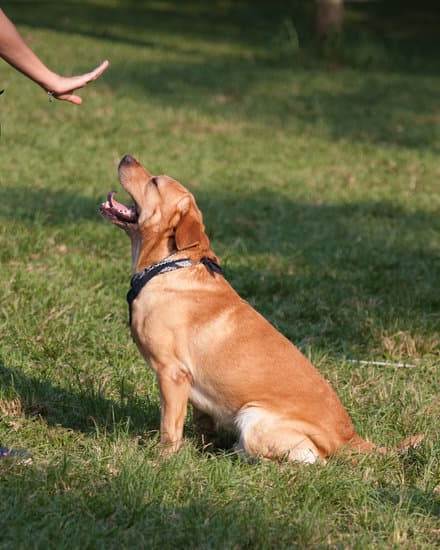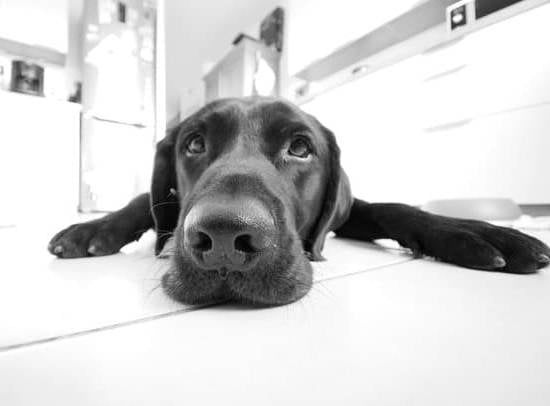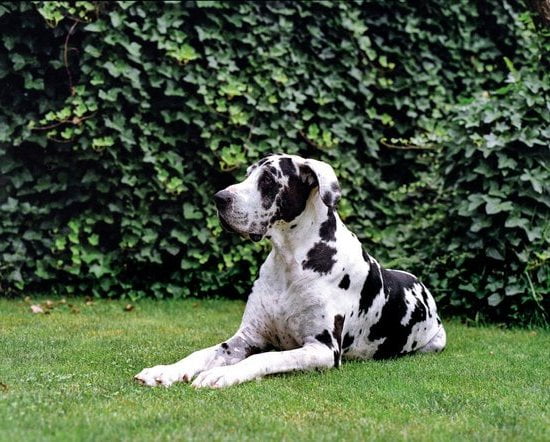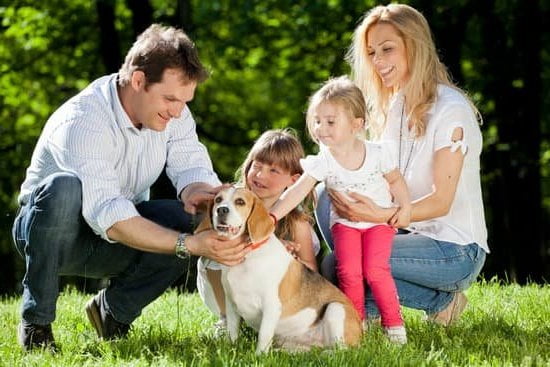Have you ever experienced the frustration of finding poop in unexpected places even though your dog is potty trained? It can be incredibly disheartening and confusing to witness your once well-behaved furry friend having accidents inside the house. In this article, we will explore the various reasons why your potty trained dog may be pooping in the house and provide insights into how to address this issue effectively.
No matter how diligent we are with our dog’s training, accidents can still occur. Understanding the frustration that comes with finding poop in unexpected places is crucial for finding a solution. Not only does it create mess and odors in our homes, but it can also be a sign that something may be amiss with our beloved pets.
In order to tackle this problem head-on, it is important to dive deeper into the potential causes behind these accidents. From behavioral issues to physical health problems and changes in routine or environment, there are numerous factors that could contribute to this behavior. By identifying and addressing the root cause of your dog’s pooping accidents, you can help them get back on track with their potty training.
In the following sections of this article, we will explore various aspects related to house training accidents in potty trained dogs. We will delve into topics such as consistent house training techniques, potential behavioral issues, underlying medical conditions, environmental factors, age-related challenges, tips for maintaining a clean home, the role of mental well-being in house training, and when it may be necessary to seek professional help from a trainer or veterinarian.
By gaining a comprehensive understanding of why your potty trained dog may be pooping in the house, you’ll be better equipped to address the issue effectively. With empathy, patience, and dedication to resolving any underlying problems your dog may have, you can work towards maintaining a clean and accident-free home once again for both you and your furry friend.
The Importance of Consistent House Training
One of the first steps in addressing why your potty trained dog is pooping in the house is to understand the importance of consistent house training. Consistency is key when it comes to teaching your dog where it is appropriate to relieve themselves. Without consistent training, confusion can arise, leading to accidents in the house.
To properly house train your dog, it is essential to establish a routine and stick to it. This means taking your dog outside at regular intervals throughout the day, such as after meals or upon waking up from a nap. Use verbal cues like “go potty” or “do your business” during these outings to help reinforce that going outside is the desired behavior.
For effective house training, praise and reward are crucial tools. When your dog successfully goes potty outside, provide positive reinforcement by showering them with praise, treats, or even their favorite toy. This positive association will help your dog understand that going potty outside is a desirable behavior.
In addition to consistency and positive reinforcement, it’s important to be mindful of any accidents that do occur inside the house. While it may be frustrating and tempting to scold or punish your dog for these accidents, it’s crucial not to do so.
Punishment can lead to confusion and anxiety in your dog, making house training even more challenging. Instead, calmly clean up any messes using an enzymatic cleaner specifically designed for pet stains, as regular household cleaners may not fully eliminate the odor that could attract your dog back to the same spot.
By focusing on consistent training techniques and establishing a routine for your dog, you can set them up for success with their bathroom habits. Remember that every dog is different, and some may take longer than others to become completely reliable with their toilet habits. Patience, persistence, and positive reinforcement will go a long way in helping resolve potty accidents in the house.
Behavioral Issues
One of the main reasons why a potty trained dog may start pooping in the house is due to behavioral issues. It’s important to identify and address these issues in order to prevent future accidents. One common behavioral issue that can lead to indoor accidents is marking territory.
Marking is a natural instinct for dogs, especially males, and it involves leaving small amounts of urine or feces as a way of claiming their territory. Dogs may do this to assert dominance or in response to changes in their environment, such as the presence of other animals or people.
Another potential cause of behavioral issues leading to indoor accidents is separation anxiety. Dogs with separation anxiety often exhibit destructive behaviors, including soiling the house, when left alone. They may feel anxious and stressed when separated from their owner, leading them to relieve themselves indoors as a coping mechanism.
Additionally, some dogs may have developed bad habits or learned inappropriate bathroom behavior due to insufficient or inconsistent training. If a dog was not properly introduced to the concept of house training or if they were inconsistently reinforced for using the designated outdoor area, they may revert back to old habits and start pooping indoors.
Identifying the underlying behavioral cause for your potty trained dog’s accidents is crucial in addressing the issue effectively. By understanding why your dog is exhibiting this behavior, you can take appropriate steps towards resolving it and preventing future accidents in the house.
Physical Health Problems
While it is frustrating to find your potty trained dog pooping in unexpected places, it is important to consider that physical health problems could be the underlying cause. Just like humans, dogs can experience medical conditions that affect their bowel movements and bathroom habits. Understanding these potential health issues can help you address the problem and find a solution.
One common medical condition that may lead to house soiling in dogs is gastrointestinal problems. Issues such as an upset stomach, diarrhea, or constipation can cause discomfort and urgency, leading to accidents inside the house. Inflammatory bowel disease (IBD) and food allergies or intolerances can also contribute to irregular bowel movements. If your dog’s pooping accidents coincide with digestive issues or changes in their diet, it is crucial to consult a veterinarian for further evaluation and appropriate treatment.
Another possible culprit for pooping accidents in potty trained dogs is urinary tract infections (UTIs). While UTIs are often associated with frequent urination and accidents indoors, they can also affect bowel movements.
Dogs with UTIs may have difficulty controlling both their urination and defecation due to the inflammation and discomfort caused by the infection. If your dog exhibits signs of discomfort while pooping or has frequent accidents along with other UTI symptoms like excessive drinking or straining to urinate, a veterinary visit is necessary to diagnose and treat this condition.
| Physical Health Problem | Potential Symptoms |
|---|---|
| Gastrointestinal Issues | Upset stomach, diarrhea, constipation, changes in diet |
| Urinary Tract Infections | Frequent urination, straining to urinate, discomfort while defecating |
| Inflammatory Bowel Disease (IBD) | Chronic diarrhea, vomiting, weight loss |
| Food Allergies/Intolerances | Allergic reactions like itchiness, hives, gastrointestinal symptoms |
If you suspect that physical health problems are contributing to your dog’s pooping accidents in the house, it is crucial to consult with a veterinarian. They can perform a thorough examination and diagnostic tests to identify any underlying medical conditions.
Once a diagnosis is made, appropriate treatment can be prescribed to address the issue and potentially eliminate the poop accidents. Remember that addressing your dog’s physical health is vital for their overall well-being and maintaining a clean and accident-free home.
Changes in Routine and Environment
One common reason why a potty trained dog may start pooping in the house is changes in their routine or environment. Dogs are creatures of habit, so any disruption to their usual schedule can cause confusion and accidents. Here are some environmental factors that can impact your dog’s bathroom habits:
- Schedule Changes: Dogs thrive on consistency, especially when it comes to their bathroom routines. If there have been recent changes to your dog’s feeding or exercise schedule, it can throw off their regular bathroom habits. For example, if you used to take your dog for a walk in the morning but have now shifted to the evening, they may struggle to hold their poop until then.
- New Living Arrangements: Moving to a new home or having guests stay over can also affect your dog’s bathroom habits. They may feel anxious or unsure about using the new space for elimination, leading them to have accidents inside the house.
- Stressful Events: Any major life event like a new baby, introduction of another pet, or loud construction work happening nearby can be stressful for dogs. This stress can manifest as changes in their behavior, including pooping inside the house.
To help address these issues and prevent accidents, here are some tips:
- Maintain a consistent daily routine for your dog, including regular feeding times and bathroom breaks.
- Gradually introduce any changes to your dog’s routine or environment to give them time to adjust.
- Use positive reinforcement techniques when your dog successfully goes outside and clean up accidents without scolding them.
- Create a designated potty area outside by consistently taking your dog to the same spot so they understand where they should go.
By understanding how environmental factors can impact your dog’s bathroom habits and taking steps to maintain consistency and provide reassurance during times of change, you can help ensure that accidents become less frequent and your house remains clean. However, if you continue to see persistent accidents despite your efforts, it may be necessary to seek professional help from a trainer or veterinarian to address any underlying issues.
Age-Related Challenges
As dogs age, they may face unique challenges that can contribute to pooping accidents in the house. Just like humans, senior dogs may experience changes in their physical and mental health that affect their bathroom habits. Understanding these age-related challenges can help dog owners address and prevent accidents in their senior pets.
Decreased Bladder and Bowel Control
One of the common age-related challenges for senior dogs is a decreased ability to control their bladder and bowel movements. This can be caused by weakened muscles or nerve damage. As a result, senior dogs may have difficulty holding their poop for an extended period, leading to accidents in the house.
To address this issue, dog owners can establish a regular bathroom schedule for their senior pets and take them outside more frequently throughout the day. Providing easy access to outdoor areas or using pee pads indoors can also help prevent accidents when immediate bathroom breaks are needed.
Arthritis and Mobility Issues
Arthritis and other mobility issues are prevalent among aging dogs and can make it challenging for them to reach their designated outdoor bathroom spot in time. Pain or stiffness associated with these conditions may slow down your dog’s movement or limit their ability to squat comfortably outdoors.
To assist your dog with mobility issues, you can consider providing ramps or steps to help them navigate stairs or obstacles on the way outside. Some older dogs may benefit from using special harnesses or slings that support their hind end during walks. Additionally, consulting with your veterinarian about pain management options for arthritis could alleviate any discomfort that interferes with your dog’s outdoor bathroom routine.
Cognitive Decline
Another age-related challenge that can contribute to pooping accidents in senior dogs is cognitive decline, including conditions like canine cognitive dysfunction (CCD). Dogs with CCD may experience confusion, memory loss, or disorientation which affects their ability to remember their bathroom training.
For dogs experiencing cognitive decline, it’s crucial to establish a consistent routine and maintain a familiar environment to reduce confusion. Using visual markers or scent cues can help guide your dog to the correct bathroom spot in the house. Additionally, creating a calm and comfortable space for your senior dog, away from excessive noise or stimulation, can also reduce anxiety and accidents caused by cognitive decline.
By understanding the age-related challenges that senior dogs may face, dog owners can take proactive steps to address and minimize pooping accidents in the house. With patience, empathy, and proper management techniques tailored to their senior pets’ specific needs, dog owners can ensure a comfortable and accident-free environment for their aging companions.
Reinforcing Proper Bathroom Etiquette
Establish a Consistent Routine
One of the most effective ways to reinforce proper bathroom etiquette in your dog is by establishing a consistent routine. Dogs thrive on routine and structure, and having a predictable bathroom schedule will help them understand when and where they are supposed to eliminate. Take your dog outside to their designated bathroom spot at regular intervals throughout the day, such as after meals, naps, or playtime.
Use cues or commands, such as “go potty” or “do your business,” to help signal to your dog what you expect them to do. Reward your dog with praise, treats, or a favorite toy immediately after they successfully eliminate outside. By establishing a consistent routine and providing positive reinforcement, you can greatly reduce the chances of accidents occurring in the house.
Supervise and Limit Access
Proper supervision is crucial when reinforcing proper bathroom etiquette. Keep a close eye on your dog, especially during times when they are most likely to need to go outside, such as after waking up or drinking water.
If you cannot directly supervise them, consider confining them to a small area of the house using baby gates or crate training. This will limit their access to other parts of the house where accidents may occur and give you peace of mind knowing they can’t wander off and have an accident in an unexpected place.
Clean Accidents Properly
Accidents happen, even with the best-trained dogs. It’s important to clean up accidents promptly and thoroughly to prevent lingering odors that may attract your dog back to that spot in the future. Use enzymatic cleaners specifically designed for pet urine and feces stains. These cleaners break down organic compounds that cause odors while neutralizing any lingering smells that may entice your dog to eliminate in the same spot again.
By following these tips for reinforcing proper bathroom etiquette, you can maintain a clean and accident-free home. Remember to be patient with your dog during the house-training process and praise them for their successes. With consistency, supervision, and positive reinforcement, your potty trained dog will soon understand where they are supposed to go and eliminate in the appropriate places.
Addressing Anxiety and Stress
One possible reason why your potty trained dog may be pooping in the house is anxiety or stress. Dogs, just like humans, can experience mental turmoil that may manifest in their behavior. Understanding the role of mental well-being in house training can help you address any underlying issues and create a more harmonious environment for your furry friend.
It is important to note that dogs are highly sensitive creatures, and they can pick up on changes in their surroundings or routines. These changes could include moving to a new home, the addition of a new family member (human or pet), or even alterations in their daily schedule. All of these factors can contribute to increased anxiety and stress and potentially disrupt your dog’s usual bathroom habits.
When a dog is feeling anxious or stressed, it may lose control over its bladder or bowels. This can lead to accidents inside the house, even if the dog has previously been properly house trained.
Common signs of anxiety in dogs include excessive pacing, panting, restlessness, destructive behavior, and increased clinginess towards their owner. It is essential to pay attention to these signs and work on reducing your dog’s anxiety levels through various techniques such as creating a safe space for them, using calming aids like pheromone diffusers or supplements recommended by your veterinarian, providing mental stimulation through interactive toys or puzzles, and engaging them in regular exercise.
In order to effectively address anxiety and stress-related potty accidents in your dog, it is crucial to create a calm and supportive environment. Consistency is key when dealing with an anxious dog; maintaining structured routines and providing positive reinforcement can help alleviate their anxiety levels over time.
Additionally, it is vital to avoid punishment-based training methods as they can exacerbate anxiety. Instead, focus on rewarding good behavior with treats and praise while redirecting any accidents calmly without scolding or harsh punishment.
Overall, taking into consideration your dog’s mental well-being is an essential aspect of house training. By addressing anxiety and stress, you can help your potty trained dog overcome their bathroom accidents and create a happier, calmer living environment for both you and your furry companion.
| Possible Causes of Anxiety in Dogs: | Signs of Anxiety in Dogs: |
|---|---|
| New environment or routine changes | Excessive pacing |
| Addition of new family member (human or pet) | Panting |
| Being left alone for long periods | Restlessness |
| Past traumatic experiences | Destructive behavior |
| Loud noises or thunderstorms | Clinginess towards owner |
Seeking Professional Help
One of the most frustrating things for a dog owner is when their potty trained dog starts pooping in the house. While there are several potential causes for this behavior, sometimes it becomes necessary to seek professional help in order to address and resolve the issue.
When it comes to seeking professional help for your dog’s potty accidents, there are two main options: consulting a trainer or a veterinarian. A trainer can be helpful if the issue seems to stem from behavioral problems or a lack of consistent training. They can provide guidance and techniques tailored to your specific situation, helping you establish a solid foundation for successful house training.
On the other hand, if you suspect that there may be underlying medical conditions causing your dog’s accidents, it is important to consult with a veterinarian. Physical health problems, such as urinary tract infections or gastrointestinal issues, could be contributing factors. A veterinarian will be able to conduct examinations and tests to rule out any medical concerns that may be affecting your dog’s bathroom habits.
It is crucial to know when it is appropriate to seek professional guidance. If your efforts at addressing the issue on your own have been unsuccessful or if you feel overwhelmed and unsure of how best to proceed, reaching out for assistance can provide valuable support and advice. Remember that trainers and veterinarians have experience working with various dogs and their specific needs, so they may offer insights and strategies that you might not have considered before.
Conclusion
In conclusion, dealing with potty accidents in the house can be frustrating and confusing for dog owners. However, it is important to approach the issue with empathy, patience, and dedication in order to resolve the problem effectively. Understanding the basics of consistent house training and identifying potential behavioral issues or physical health problems can help determine the root cause of your potty trained dog’s accidents.
Changes in routine and environment can also impact your dog’s bathroom habits. By being aware of these environmental factors and making necessary adjustments, you can help prevent accidents from occurring. Additionally, age-related challenges may contribute to pooping accidents in senior dogs. It is crucial to provide them with extra support and understanding during this stage of their lives.
Reinforcing proper bathroom etiquette through consistent training and positive reinforcement is essential for maintaining a clean and accident-free home. It is also important to address any anxiety or stress that your dog may be experiencing, as these emotions can impact their house training. Consulting a professional trainer or veterinarian may be necessary in cases where potty accidents persist despite efforts to resolve them.
Overall, resolving potty accidents in the house requires empathy towards our dogs’ needs and feelings, patience throughout the training process, and dedication to finding solutions. By taking the time to understand the underlying causes of these accidents and addressing them appropriately, we can create a happier and healthier environment for both ourselves and our furry companions.
Frequently Asked Questions
Why is my potty trained dog suddenly pooping in the house?
There can be several reasons why a potty trained dog suddenly starts pooping in the house. One possible cause is a medical issue, such as an upset stomach or gastrointestinal problem that is causing urgency or discomfort. It’s important to rule out any potential health issues by taking your dog to the vet for a thorough examination. Another reason could be stress or anxiety.
Dogs are creatures of habit and any significant changes in their routine, environment, or household dynamics can create stress, leading to accidents indoors. Additionally, insufficient or inconsistent training may also contribute to this behavior. Assess if there have been any recent changes, ensure your training techniques are consistent, and consider providing your dog with additional mental and physical stimulation.
Why is my dog having accidents in the house all of a sudden?
Accidents in the house all of a sudden can be quite frustrating for pet owners. The sudden occurrence of accidents may have various underlying causes. Firstly, it’s crucial to rule out any potential medical issues by consulting with a veterinarian, as certain conditions like urinary tract infections or bladder stones can result in increased frequency of accidents.
Dogs might also experience behavioral regression due to various factors including stress, anxiety, boredom, territorial marking, or even new additions to the household like another pet or a new baby. Revisit your dog’s potty training routine and ensure you’re providing enough opportunities for them to relieve themselves outside while reinforcing positive reinforcement techniques.
Why is my dog pooping in the house even after being outside?
If your dog continues pooping inside the house despite having been taken outside, there might be specific reasons behind this behavior. One possibility is that they haven’t fully associated going outdoors with eliminating waste yet due to incomplete housetraining or confusion within their routine. In such cases, carefully monitor your dog’s bathroom habits outdoors and reward them when they successfully go potty outside.
It could also be related to medical issues such as bowel problems or intestinal parasites that need attention from a veterinarian. Additionally, some dogs might find outdoor environments distracting or overwhelming which can result in them holding their bowel movements until they are back inside the house. Understanding your dog’s preferences and ensuring a comfortable environment during outdoor potty breaks can help address this issue.

Welcome to the blog! I am a professional dog trainer and have been working with dogs for many years. In this blog, I will be discussing various topics related to dog training, including tips, tricks, and advice. I hope you find this information helpful and informative. Thanks for reading!





